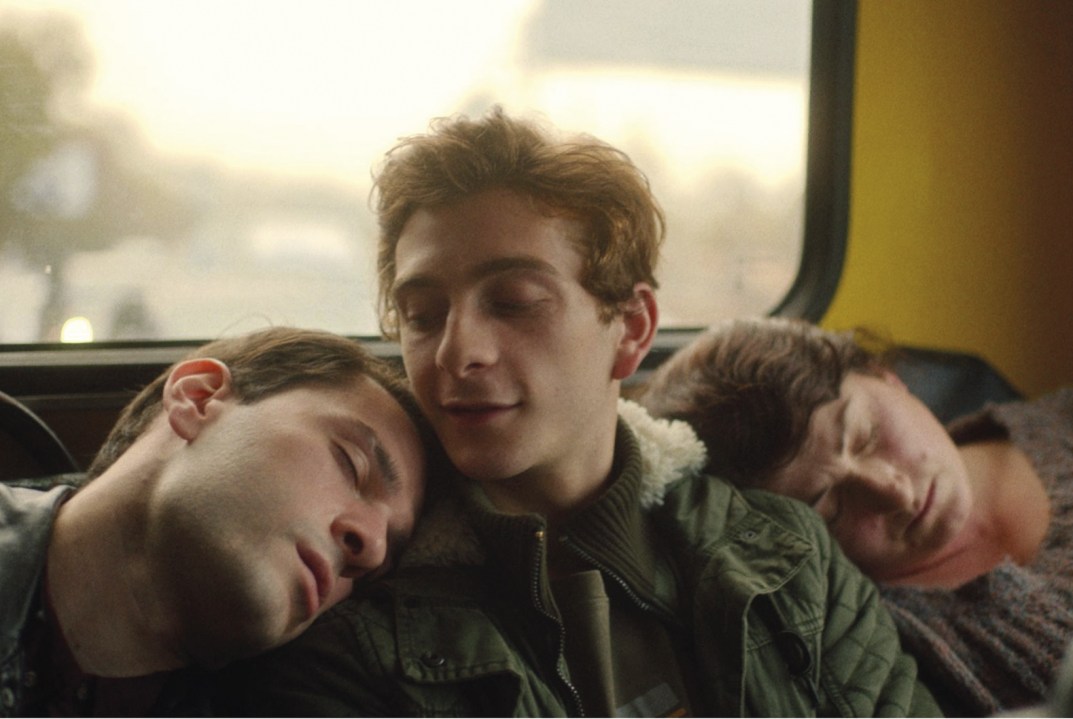The film you want to see this week that you mightn’t have seen if you weren’t stuck at home is And Then We Danced, a gay love story set in Tbilisi, Georgia, and it is truly wonderful and gorgeous. Every cloud and all that. However, in my area the demand on broadband is so high that all I get is buffering, buffering, buffering, like it’s 1996, so the only way I could watch this in its entirety was by getting up at 5 a.m. And if it was an absolute pleasure then, it’ll be an absolute pleasure anytime. It passed the 5 a.m. test, you could say.
Some scene are so mesmerising that you might even momentarily forget a killer virus is after you
This has been made by the Swedish-Georgian filmmaker Levan Akin who was inspired after Georgia’s first gay pride parade in 2013 was beset by protests. (Fifty people were attacked by thousands in the streets — when people could be in the streets; happy days!) It was filmed clandestinely and stars Levan Gelbakhiani as Merab, who lives with his mother, grandmother and layabout brother. Working evenings as a waiter, Merab has been training since childhood for a spot at the highly prestigious National Georgian Ensemble, which specialises in traditional dance. The dancing is extraordinary, physically electrifying. I could have just watched the dancing and gone home happy (not that I’m not at home). But the style is rigid and almost militaristic with no room for improvisation and Mareb’s bullying teacher often chastises him for not being ‘masculine’ enough and for being too ‘soft’. Mareb has a girlfriend of sorts but when this charismatic new fella, Irakli (Bachi Valishvili), joins the class, he is set on a different path.
In a sense, there is nothing new here, and it will put you in mind of God’s Own Country and Call Me By Your Name, and other films about unspoken desire and sexual awakenings, except this is better. Not only does it offer a glimpse into everyday life in Tbilisi, which is fascinating in and of itself —is this the new travel?; do Georgians generally eat cucumber at breakfast? — but Akin fleshes out all the relationships superbly and suffuses everything with such feeling and longing. A glance. A flirtation. Then the building, building, building. And always tension, always a sense of danger given how homophobic and conservative this society is, although it’s never conveyed heavy-handedly. A snippet here. A snippet there. We know.
Every scene is finely worked. A brief meeting with Mareb’s father tells us all we need to understand about him, for instance. And it’s beautifully filmed, with some scenes so mesmerising — I am thinking of one long tracking shot at a wedding in particular — that you might even momentarily forget a killer virus is after you. As for Gelbakhiani, otherwise a dancer, his performance is exquisite, perfectly capturing the thrill of first love, and while the ending may be somewhat predictable, it is still terrific. And physically electrifying.
So, in short, a worthwhile film for any time of night or day. Luckily.







Comments